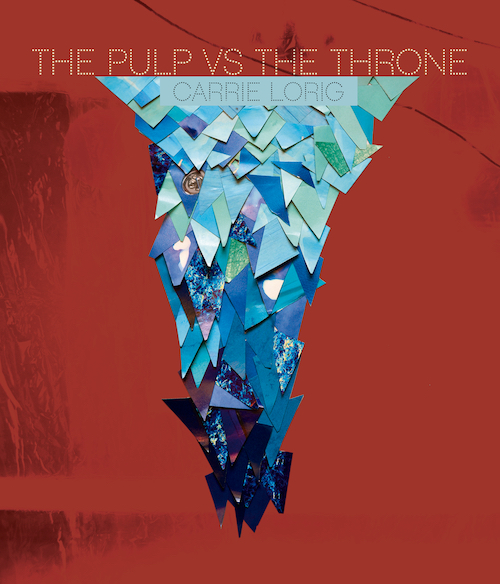Carrie Lorig's Expertise Is a Natural One

The review we're poring over today: Leora Fridman on Carrie Lorig's The Pulp vs. the Throne (Artifice Books, 2015) at Jacket2. "Lorig’s is a wide-reaching grasp of a book that attempts [an] ultimate lack of closure, ultimate engagement and availability," writes Fridman. More:
The referential roll of these poems creates a rigor outside how we usually understand reference: a rigor outside of normative expertise. It also asks the reader immediately about legitimacy, and about knowledge: What does it mean to build knowledge upon and with sources? Are we allowed to use sources if we don’t do it with normative expertise, if we don’t do it as is required of experts? Are we allowed to simply read?
Lorig’s expertise is a natural one, and in fact reinvents the word “natural” to an extent that makes it difficult for one to even use that word. It is natural expertise because it demonstrates and requires only a mind, alive, connecting thoughts. It requires only being alive in one’s body, one’s capacity to read, one’s integration of information. It requires only awareness, and this awareness is exactly what qualifies it as expertise, as a voice. Lorig writes,
Without shrinking, I wake up writing to you. (66)Lorig does not shrink back from what she is aware of and who she addresses. She does not shrink: she wakes up, aware of the act of writing. She creates documents, and refers back to them. She creates a space where she does not have to shrink, where she can wake up to writing.
This is where trauma enters Lorig’s work, too: her poems refer back and refer back — both to cited sources and to Lorig’s repeated phrases — refer back and refer back until their own wrapped form of meaning is made.
but Repetition is never Repeating Exactly. It is each sentence Exactly. what and where is Precise, but what is Precise Precisely if it doesn’t yield and Exactitude? […] Each time round is an extraction. Each time round we find the return. Each time round the return is immediate. Each time round the return is brutal. Each time round the return is near. Each time round I learn what should be a trap. (29)Repetition and reinvention and re-understanding: this is how meaning is made from the traumatic, from the unexplainable. Meaning is made by making a highly individual sense of one’s experience, and the repetitive committing of this act can be a common marker of trauma...
Please read more meaning-making here. And reach back in time to April of last year with "THIS IS MESSY, WE'RE NOT SORRY," in the mire with Cassandra Troyan and Carrie Lorig.


